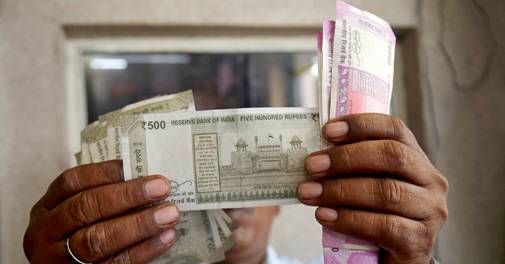Covid-19 has affected countries, global markets and individuals on varying levels. Many measures have been taken by regulators and governments in response to this crisis to ensure that their respective economies survive. With the weight of sustaining livelihood becoming more critical as compared to reducing the pace of COVID-19 spread, governments across the globe are now heading towards gradual unlocking of the economies.
Unprecedented situations like these can lead to hasty decision making, some of which might yield sub-optimal results, and hence investors should try to avoid the following mistakes:
1. Inadequate rainy day Fund
The importance of having an emergency fund is critical during the current pandemic situation with a lot of uncertainties relating to businesses and job continuity. It is advisable to keep at least 3 to 6 months of your expenses as an emergency fund and putting those funds in highly liquid instruments such as liquid funds or fixed deposits. Having all your savings into financial instruments which have lock-in periods would be unwise going forward.
2. Not managing your Expenditure
It would be prudent to postpone large expenditures that are discretionary in nature till such time that things become normal, in order to maintain adequate liquidity and savings. Avoid spending money on big ticket items during online sales from e-commerce companies until it is of utmost necessity.
3. Stopping your SIPs/Investments
After witnessing a bear market in equities, investors usually get cold feet in deploying new money to beaten down strategies. Instead of timing the markets one should continue their investments based on existing financial plan.
4. Taking fresh Debt
It is advisable to not take new loans during a pandemic situation, as there is very less income security with possible salary cuts, job losses on account business slowdown. Any default in the repayment of loans could negatively impact your credit score and future borrowing ability. On the contrary, you should try to repay your liabilities starting with higher interest loans such as credit card debts to reduce your financial burden.
5. Not reassessing your Financial Plan
Periods like these give opportunity to reassess risk tolerance appetite and rebalance the portfolio to the desired levels. Risk assessments done during sunny days have chances of being wrong mainly due to overestimating the risk appetite.
In summary, it would be prudent to draw up your own Investment Charter, which is a vision document that lays down the philosophy, framework and process of managing your portfolio, while also aiming to understand broadly, the purpose of investment, horizon, liquidity and risk appetite.
Other Related Blogs
3 ways COVID-19 will change our Investments
This period was characterized by responses at two levels—to ensure that business continued as usual and to manage client expectations as markets turned extremely volatile and unpredictable.
EMI Moratorium (COVID-19)
If you do not pay the next two EMIs of your loan, you will not be blacklisted. But the bank will charge interest for the unpaid amount. Missing two instalments could extend your loan by 6-10 months or increase EMI amount by 1.5%
How to Save Money during COVID-19
The COVID-19 crisis has caused immense disruptions in our lives, not just to our jobs but to our health as well. Businesses have been forced to temporarily shut down to support efforts in containing the COVID-19 pandemic, with some even ceasing operations due to the huge losses incurred during the community quarantine.
Emotional Well-Being, Mental Health and Coping during COVID-19
The COVID-19 pandemic has had a major effect on our lives. Many of us are facing challenges that can be stressful, overwhelming, and cause strong emotions in adults and children. Public health actions, such as social distancing, are necessary to reduce the spread of COVID-19, but they can make us feel isolated and lonely and can increase stress and anxiety.
How to Restore Balance in Your Life after a Shaky 2020
Routines are a balancing act at the best of times but in the year of Covid, all the balancing was done on a knife-edge. You were confined to home but the office encroached on your personal time. Exercise, relaxation and recreation were sacrificed.
10 Good Things that happened in 2020
The COVID-19 pandemic killed more than 1.7 million people worldwide, an undeniable and at least partly avoidable tragedy. Millions were thrown out of work, although the world unemployment rate is still below where it was in the Great Recession; millions more sank back into poverty. The global economy, once expected to grow by 2.5 percent, shrank by an estimated 4 percent.
6 Ways to ensure Financial Wellness during COVID
The outbreak of covid-19 only made matters worse for the global economy, which was already juggling between many issues. You must take prudent financial actions, both preventive and corrective, to ensure overall you and your family’s financial wellness.
How to Save Money during COVID-19
Saving and paying your debts depends mainly on a few criteria which are: If EMIs interest rates are low then save money first before paying EMIs. Secondly, if your rate of interest is high then pay your dues first and then save money. Thirdly, check your income and spending together by making a proper budget plan, then decide how much cash you have.

